


2024 Winter Vacation - University College, London Visit Sharing
“The warm winter sunshine, sprinkled in the corners of London, causes a cluster of small flowers to bloom brilliantly. The Thames River cuts a turquoise line through the center of London along a track that has been the same for thousands of years, reflecting the elegant life of Londoners. Stepping out into the winter afternoon sunshine and wandering through the warm streets and alleys of London, you will smell the slightest hint of familiar tea from afar and will hear soft conversations. Londoners enjoy an elegant life that is different from others, sitting on wicker chairs in the warm sunshine, reading newspapers, having afternoon tea and snacks with their families......”
In London, which has an 8-hour time difference with China, are the students who are visiting the university enjoying such a slow-paced life? Let's listen to the voices of our students.
--A Student (ZHOU)
Before starting to write, I spent a long time flipping through my photo album, mentally drifting back to a month ago.
At that time, the tired girl lugging her suitcase through the journey could never have imagined the golden moments that awaited her—moments she had never experienced in her twenty years of life. As I try to write, the song White Bird Over the Riverbank plays in my mind. Honestly, I hummed this song on almost every trip. "White bird, white bird, don't look back. You must fly to that place for me." But this time, I truly rode on a giant, strange mechanical white bird, crossing the wide "riverbank," becoming a humble stranger in a foreign land.
When I first set foot in Britain, it just so happened to be drizzling. I clung to the cold, damp air as if it were a lifeline, finding great comfort in the weather so similar to my hometown. Perhaps my aura of unease was too overwhelming, so much so that the compassionate gods of England couldn’t bear it. Along the way, I encountered so much kindness—greetings from strangers, deepening bonds with my teammates, attention from the school’s teachers, and friendly conversations with shopkeepers. Humans are, indeed, social creatures. The actions of those around me felt like a soft velvet blanket, wrapping me as I moved through the intermittent misty rain that London occasionally offered.
Although I’m reluctant to call any journey a magic remedy, the drastic change in environment, along with the intensive courses, made it inevitable that my English speaking, listening, and social skills would improve rapidly. The everyday conversations were only part of it; for our final project, I had to go out and conduct surveys with locals, and the official presentation at the end was not only a test of my speaking skills but also an opportunity to build confidence.
Throughout these interactions, I realized that cultural differences play a significant role in communication. People from different countries and regions hold distinct values, behaviors, and ways of thinking. To better integrate into the local culture, I made an effort to understand and respect their customs, avoiding misunderstandings or conflicts in our conversations. At the same time, I shared aspects of Chinese culture with them, deepening mutual understanding and fostering friendships.
For the past nineteen years, I’ve always believed in the saying, "Life is like a journey, and I am but a traveler." With a mix of optimism and pessimism, I felt that people come and go in life—there's no need to rejoice in their arrival or shed tears when they leave. But at the end of this journey, it felt like something changed. Preparing New Year's poems for everyone, waving goodbye with shy excitement, and capturing endless moments with my camera during our parting day—it all felt different. Those who give love receive love in return, and the reverse is equally true.
“Say goodbye to the past, the birds in the forest—they are returning to where they came from.” I wrote this in my journal on the day of the program’s completion. As I reflect on everything now, I’ve decided to end this piece with the same words. I believe the future holds vast possibilities, but this experience will always be unforgettable, always worth cherishing.
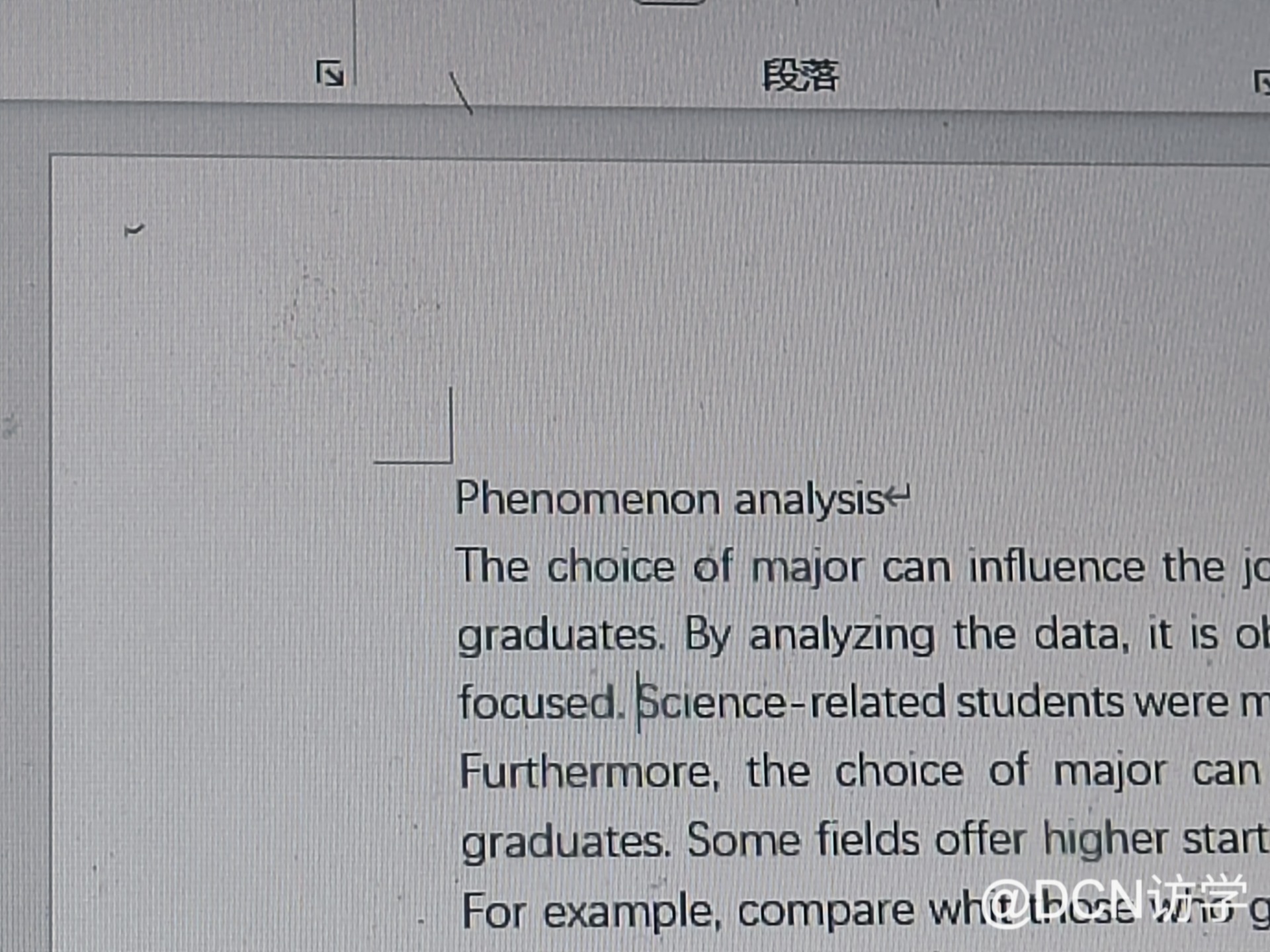
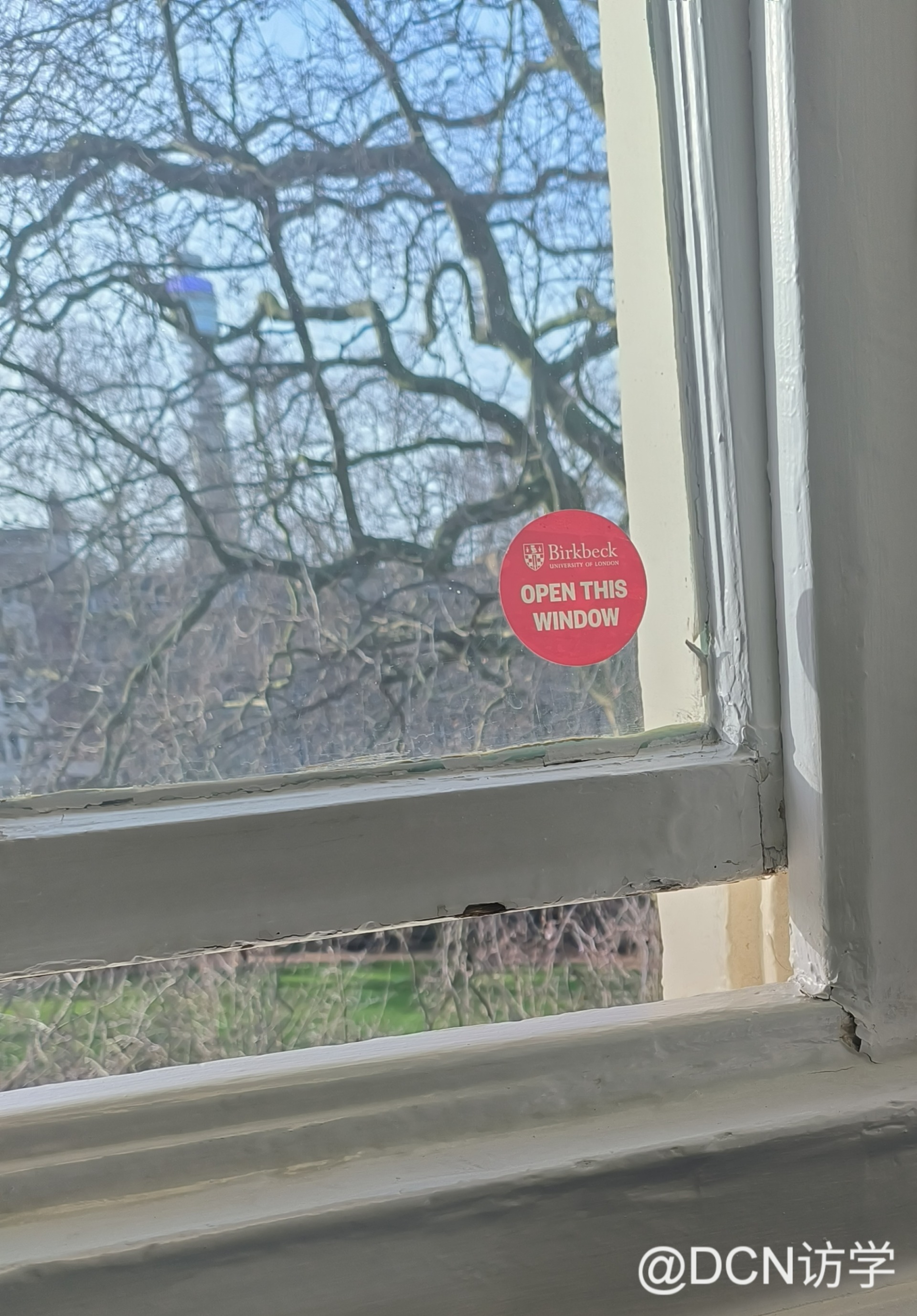
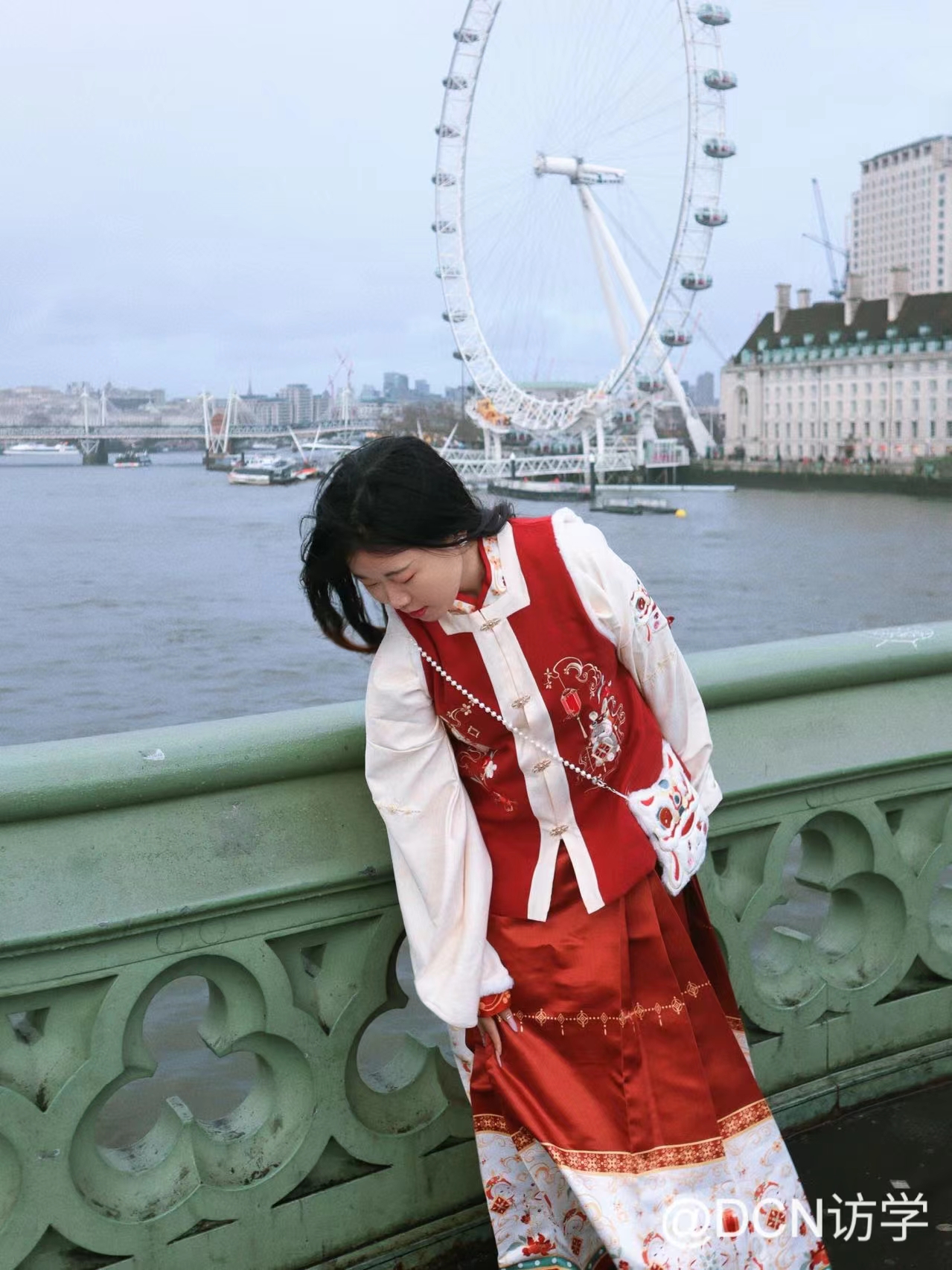
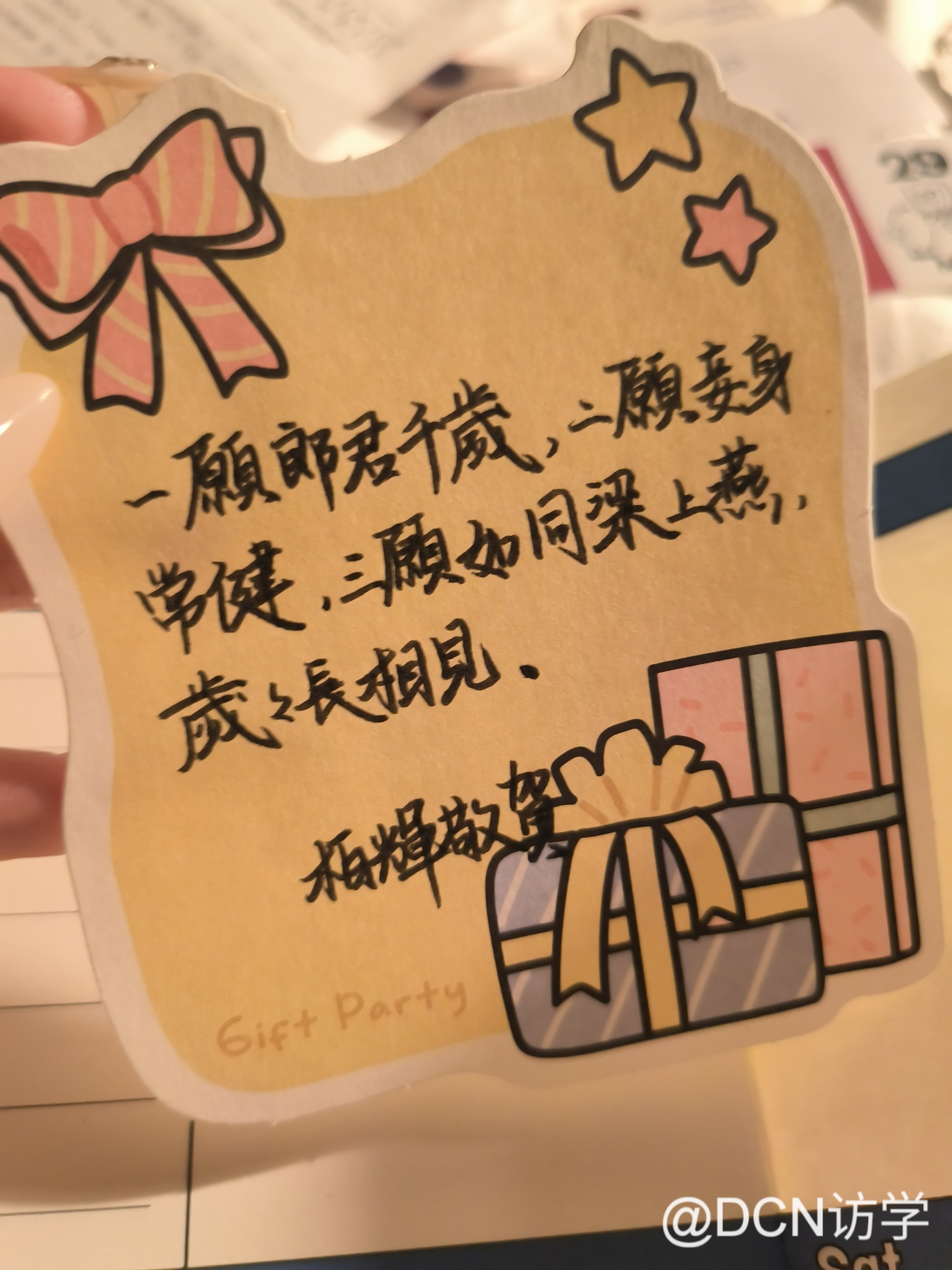
--A Student (LIU)
On January 20, 2024, we boarded a plane to the UK, embarking on a 28-day short-term study tour.
For the first three weeks, we focused on language learning, and in the final week, I chose to study educational psychology.
During the first three weeks, we mainly learned about the UK while also improving our English skills. Our teacher, Andy, was very kind and approachable, and he prepared thoroughly for each class. He always provided us with lesson plans and sometimes included fun games to spark our interest. For example, we played a quiz game using Kahoot, which featured many questions about the UK, such as which is the busiest tube station, which is the deepest, and how many routes are above ground. We also played a guessing game where we wrote down famous people or landmarks on small pieces of paper, divided into two teams, and had to guess based on clues. To test our vocabulary, we were split into four groups, with one person from each group going up front while the rest explained words for them to guess. These activities helped me learn a lot, and Andy’s interactive and encouraging teaching style made me more confident about speaking English. At the end, we completed a research project, created a report and a PowerPoint presentation, which really improved my organizational and coordination skills, as well as my speaking and writing abilities.
In the final week, I studied educational psychology, covering six themes. The first was the application of psychology and neuroscience in education, the second was brain and behavior development, the third focused on contemporary issues in educational psychology, the fourth was core topics in educational psychology, the fifth looked at individual differences in education through the lens of psychopathology, and the final theme was building psychological well-being in education. My favorite topics were the second and fifth. Our professors, Roberto and Andrew, were incredibly knowledgeable and also funny! I absolutely loved their classes! Roberto spoke a bit slower, while Andrew’s pace was faster, so I didn’t catch everything Andrew said, but I generally understood the main ideas.
This was my first time linking psychology and neuroscience together, a new and emerging field. I believe psychology is crucial, not only for children, parents, students, and teachers, but also for everyone, including ordinary people and leaders. A healthy mind is more important than anything else. However, in China, the development of psychology has been relatively slow, and people are often reluctant to admit they have psychological issues. As a result, many people are unaware of their mental health problems, which are often ignored. Connecting neuroscience with psychology can make psychological research more scientific, with a stronger theoretical foundation. I hope that if I have the chance in the future, I can further study this field and bring advanced psychological knowledge back to China to help promote its development.
I feel incredibly fortunate to have participated in this short-term study tour. It has been very significant for me, helping to shape my future path. I am extremely grateful to the Duanshen Education Group, my school, UCL, and my parents for giving me the opportunity to study at UCL and learn about more advanced psychological theories.
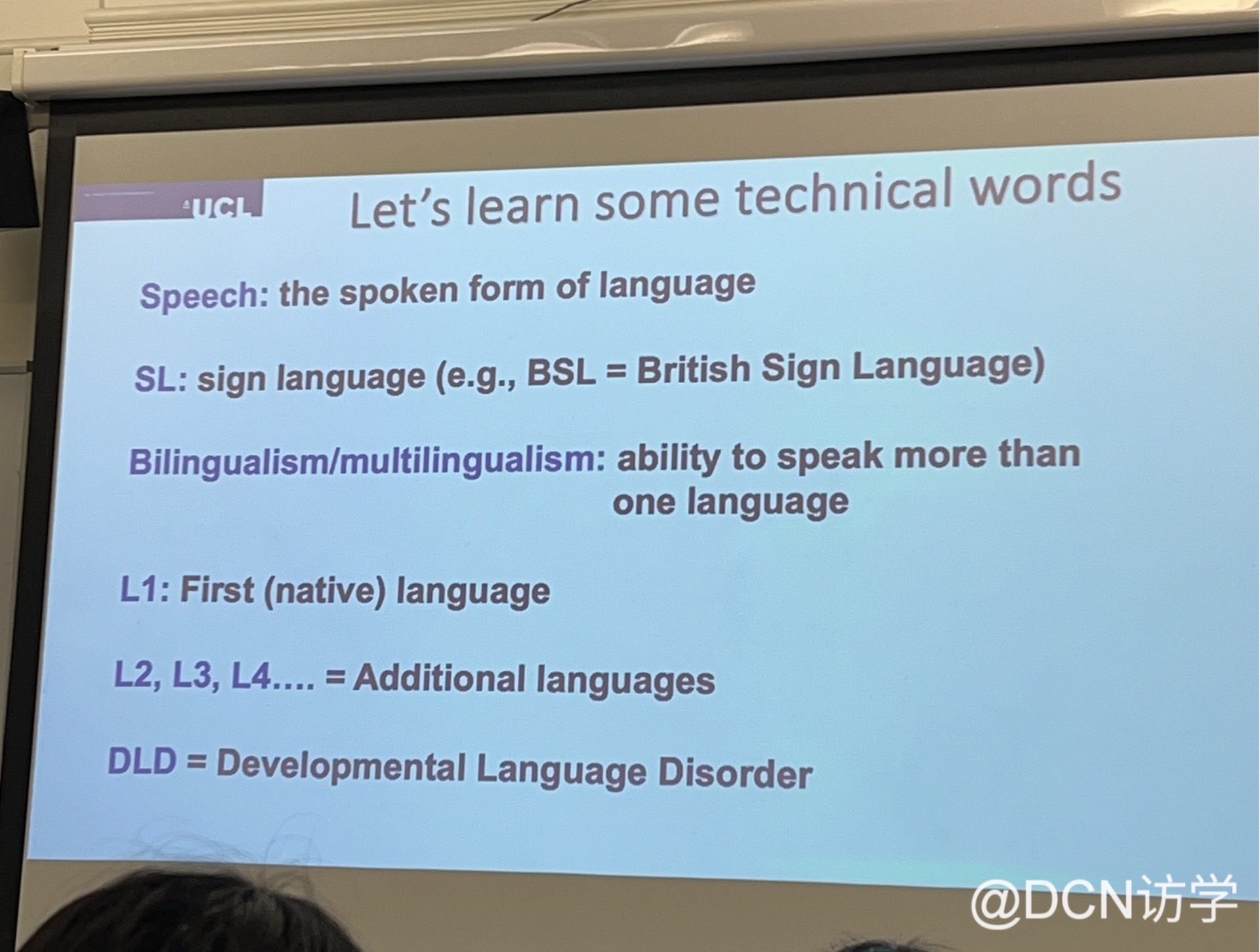

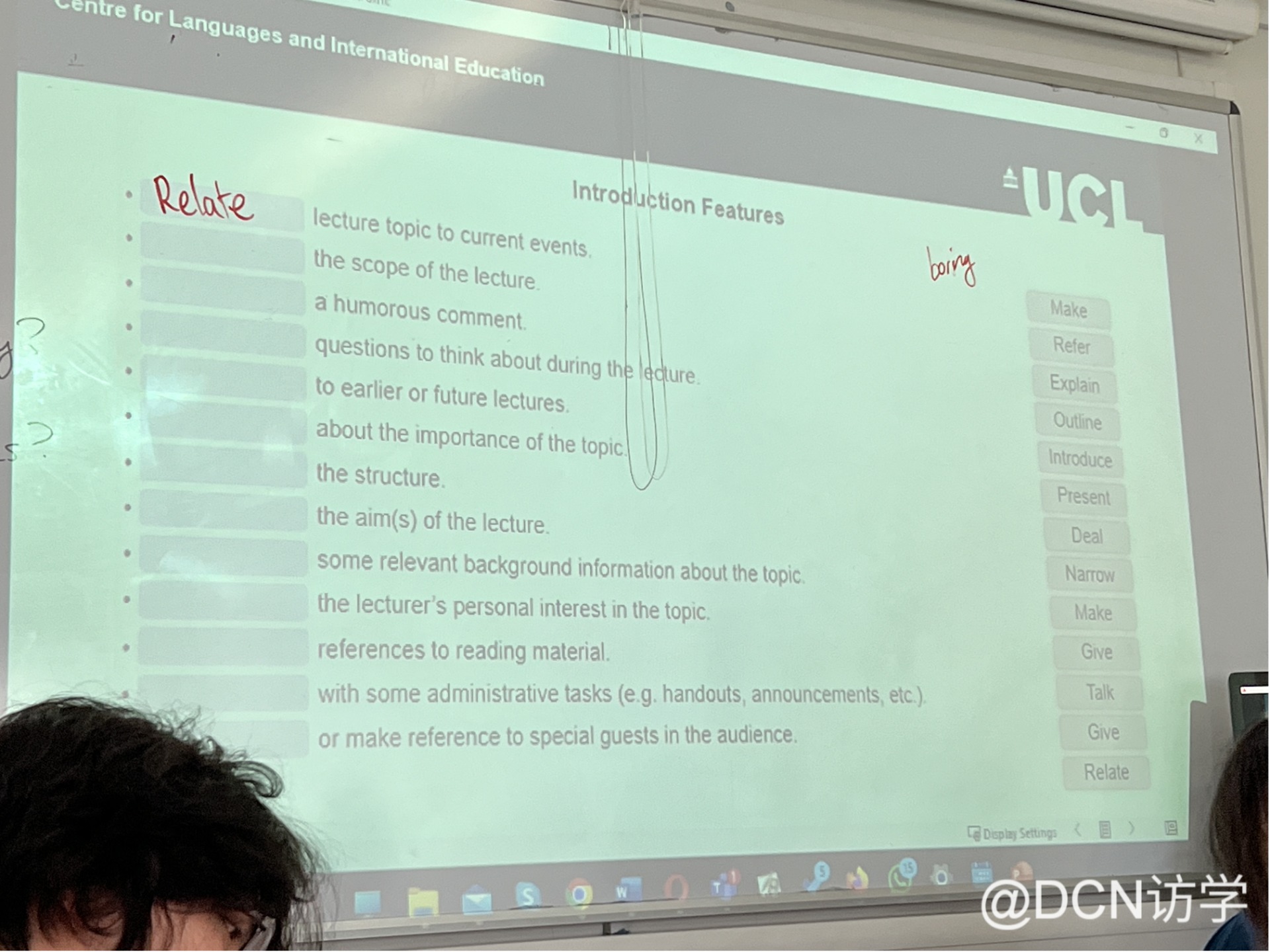
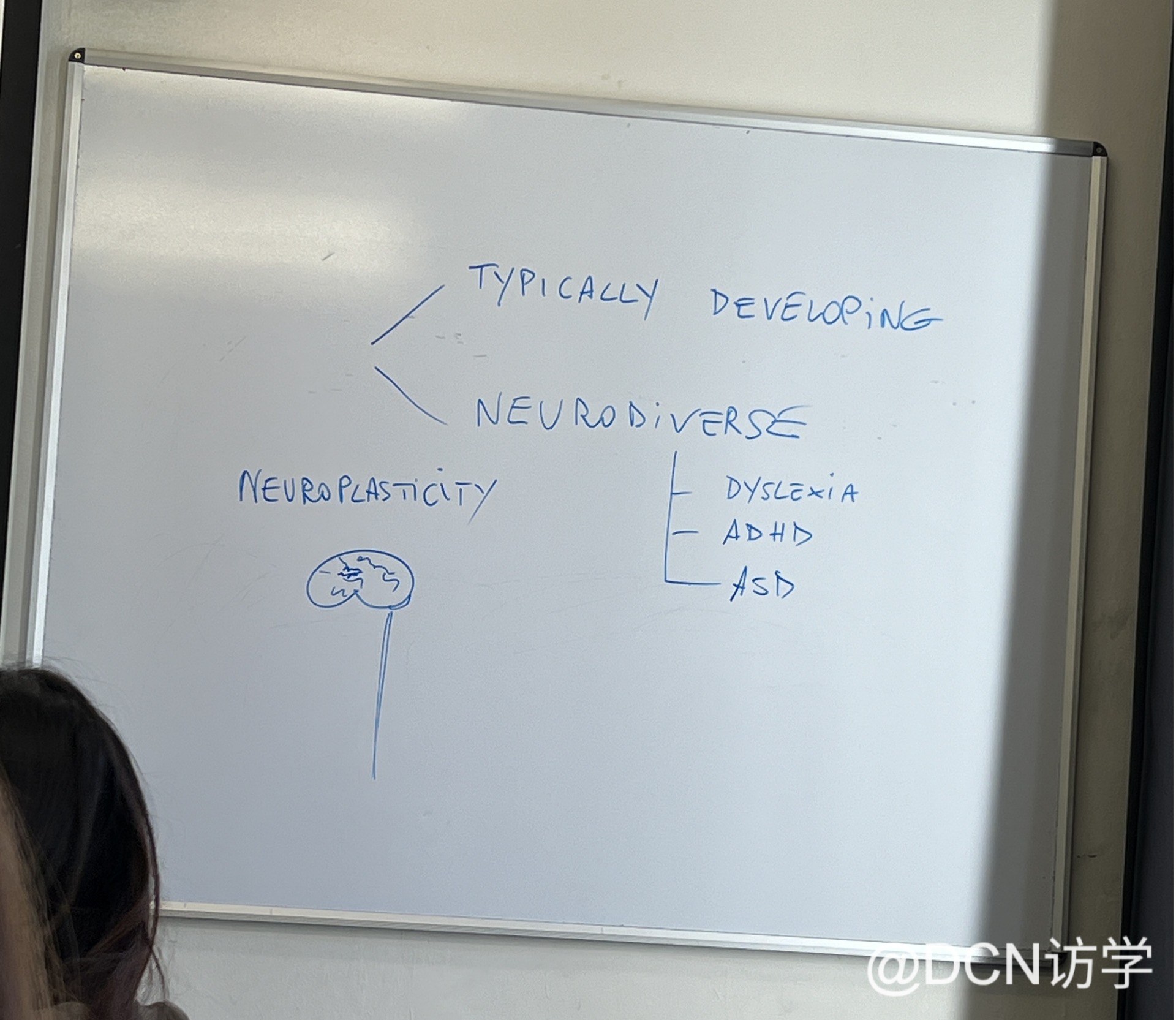
--A Student (LAI)
The UCL study tour during this winter break was not only an opportunity to learn, but also a journey of personal growth—an experience that feels like it happened just yesterday. From the moment I saw the project on the school website to the time I confirmed my registration, I barely hesitated. I knew this was the opportunity I had been waiting for—a once-in-a-lifetime chance. I also understood that, as someone who had never traveled abroad alone, this would be an adventure and a completely new experience. There might be difficulties, and there could be challenges I had never faced before. Even though I was worried about the unknown road ahead, deep inside, I wanted to see how far I could go without the protection of my family. At the age of 20, I need to continuously take risks and expand my horizons. I long to truly step out of my comfort zone and begin a new chapter of my life on the other side of the ocean.
At UCL, I was exposed to many advanced teaching concepts and academic ideas, and I deeply experienced the charm of cross-cultural communication. Both of my teachers, Carla and Josh, were exceptional. In class, we didn’t need any time to adapt to their teaching style—we were instantly immersed in the lessons. We were free to share our opinions, and the teachers were always patient and encouraging when listening to us. In the classroom, the relationship between teacher and student wasn’t confined to the traditional roles; most of the time, we interacted like friends, speaking openly and freely. After four weeks of study, I gradually realized that the classroom atmosphere could be so relaxed and enjoyable. Knowledge doesn’t always have to be acquired through rote memorization.
Outside of class, Carla shared with us interesting stories about life in London and used quizzes to help us get to know each other better. Josh often led us outside the classroom to observe and experience the world around us with both our eyes and hearts.
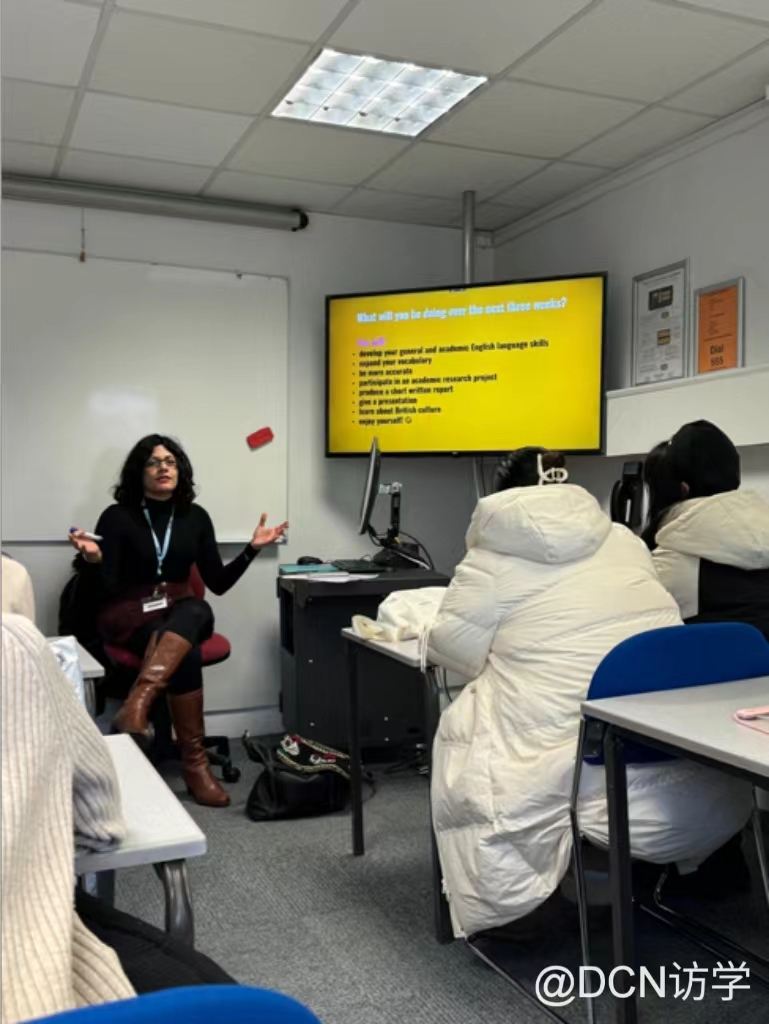
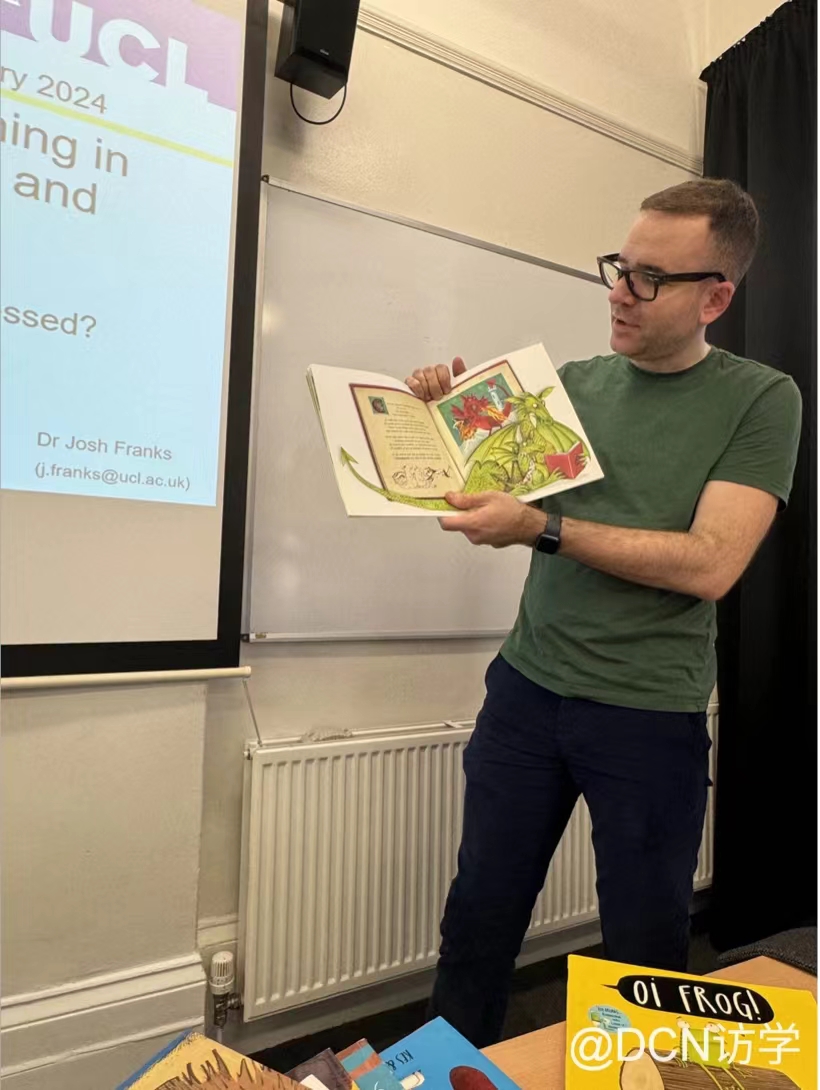
What impressed me the most was when Carla had us design a survey in groups and then conduct random interviews around the campus.
Before the interviews, we were all a bit nervous, worried that things wouldn’t go as smoothly as we hoped. But, as the saying goes, the first step is the hardest. After interviewing one or two students, we realized that everyone was very kind and willing to help us complete this task. This activity will always be one of my cherished memories from this project.
During this program, I also met many outstanding classmates. We came from different provinces and schools, but fate brought us together. Each person had their own unique strengths. In class, we helped each other, learned from one another, and completed assignments together. After class, we explored famous landmarks together, using our footsteps to measure the vast world.
Every day in London was fulfilling and joyful. Aside from attending classes, I visited many famous museums and historical sites, learning about British history and culture. I also tried many traditional local dishes, and I must say, fish and chips truly deserve their fame as a classic British dish—although there were times when I missed the food from home.
No matter how far the distance, the harder you work, the closer you get to your goal. Looking back on this study tour, I feel that I’ve gained so much. Not only did I learn a lot, but I also made many friends. Before we boarded the plane to return home, we gathered together and promised that our friendship would endure long after the program ended.
Life is a magical adventure, and as long as you have the courage, you can create your own brilliant journey. I believe this experience will become a valuable treasure in my life. In the days ahead, I will continue to work hard, keep improving, and become the best version of myself.
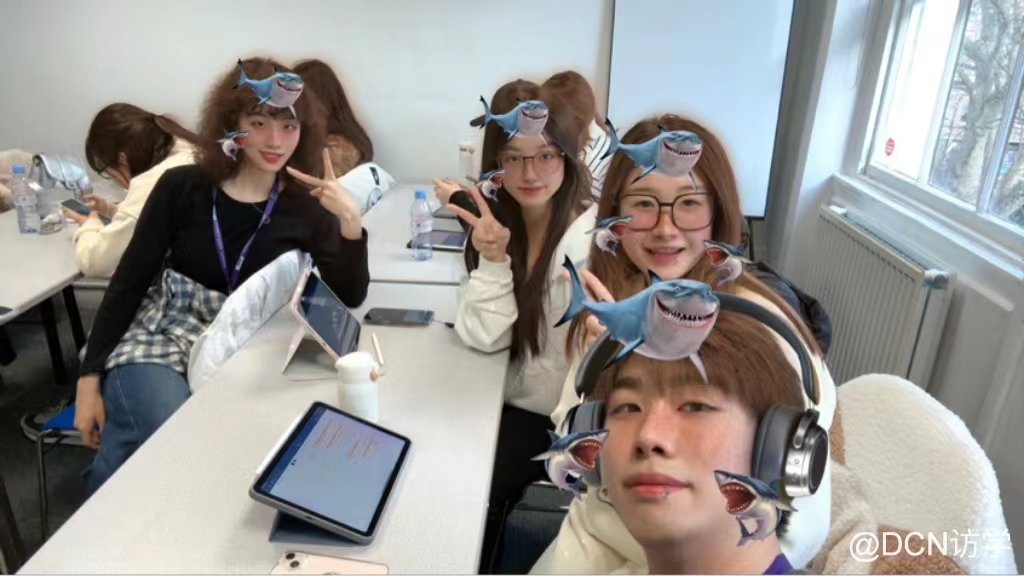
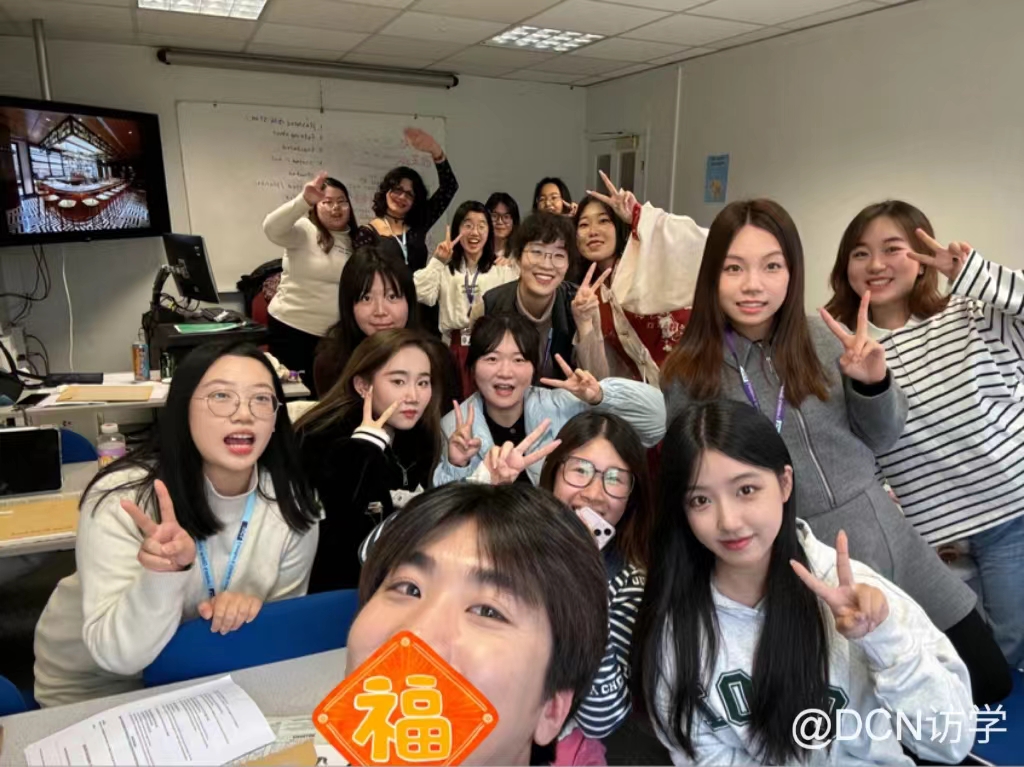

--A Student (YANG)
At the end of 2023, I participated in a short-term study program at University College London (UCL) through an opportunity provided by my school.The month I spent studying at UCL taught me a lot of valuable knowledge, gave me the chance to experience local customs and culture, and allowed me to form many strong friendships. This will forever be a precious, shining memory for me.
Academics:In terms of academics, I enrolled in a four-week course. Through the first three weeks of English study, I greatly improved my English-speaking abilities and language organization skills. I gradually realized that even though I was in an unfamiliar, all-English environment in London, as long as I had the courage to open my mouth and express myself, I would discover my limitless potential. I found that communicating with others was an important way to improve my English. Our teacher not only taught us vocabulary but also used fun and relaxed methods to help us understand the context in which sentences are used. Each of us had the chance to express our thoughts, ask questions, and improve our teamwork through group activities. In the fourth week, I chose early childhood education, and the teacher took us to the nursery on campus, where we gained further insights into the environment of early childhood education. We also learned a lot about teaching methods and student feedback, which enriched my knowledge significantly.
Personal Life:Living on my own in an unfamiliar environment for a month was a great opportunity to improve my independence and problem-solving skills. From the initial unfamiliarity with London, I gradually became confident in navigating the city, taking the subway, trains, buses, and even cable cars. I learned to use Google Maps to find my way around and became more comfortable expressing my thoughts in conversations with others. These achievements gave me a huge sense of accomplishment, and they taught me that no matter what the environment or challenge, as long as you take that first step and try to solve the problem, you’ll find that things are not as difficult as they seem. At the same time, I came to understand that continuous learning and broadening your horizons are lifelong pursuits. This process will give you greater abilities and confidence.
Culture:During my two months in London, I also deeply experienced the local customs and culture. In my free time, my friends and I visited many famous landmarks such as Big Ben, Chinatown, Oxford Street, Cambridge University, and Hyde Park. I was deeply moved by the beauty of London’s scenery. We also tried many famous restaurants, enjoyed delicious food, visited several museums, and watched numerous plays. Along the way, we met many different people—elderly folks, women, young boys—all of varying ages, genders, and appearances, yet they all shared one thing in common: they were polite and kind. They would always smile and ask, "Do you like London?" Throughout this month, I encountered so much kindness, received countless smiles, and experienced endless warmth. This left a deep impression on me. During Chinese New Year, many shops displayed "Happy New Year" signs, and Chinatown was decorated with lanterns, creating a festive atmosphere. When I wore my traditional Chinese "Mamianqun" (horse-face skirt) on the streets of London, I felt incredibly proud. While learning about foreign customs, I also took pride in bringing traditional Chinese culture abroad.
Friendships:
On this journey, I made many like-minded friends. Our teachers were also very kind—they acted as both teachers and friends, making me feel warmth in this unfamiliar environment and making my trip even more enjoyable!
In the end, when it was time to say goodbye, I couldn’t help but shed a few tears alone. Perhaps I felt proud of my courage throughout this journey, perhaps I was grateful for the opportunity to participate in this program, or perhaps I simply couldn’t bear to part with the time spent with my teachers and friends. But no matter what, we all have to pack our bags, gather our emotions, and face the days ahead, continuing to level up and face new challenges. However, the memories I made at UCL will always be a source of strength that pushes me forward. Whether it’s today, next year, ten years from now, or even longer, I believe I will always cherish and love this period of my life, carrying this strength with me as I continue on my path. Lastly, I sincerely thank everyone I met during this journey. May we all grow better in the future, and until we meet again!
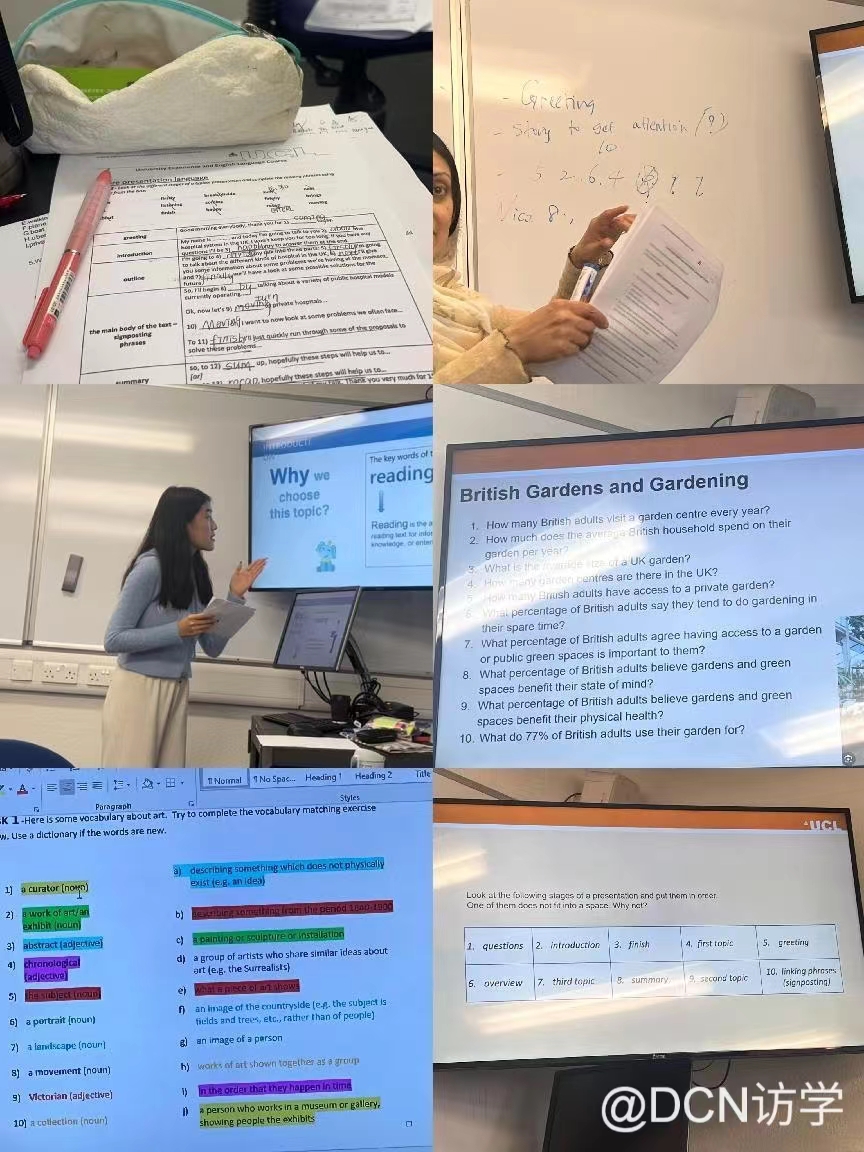
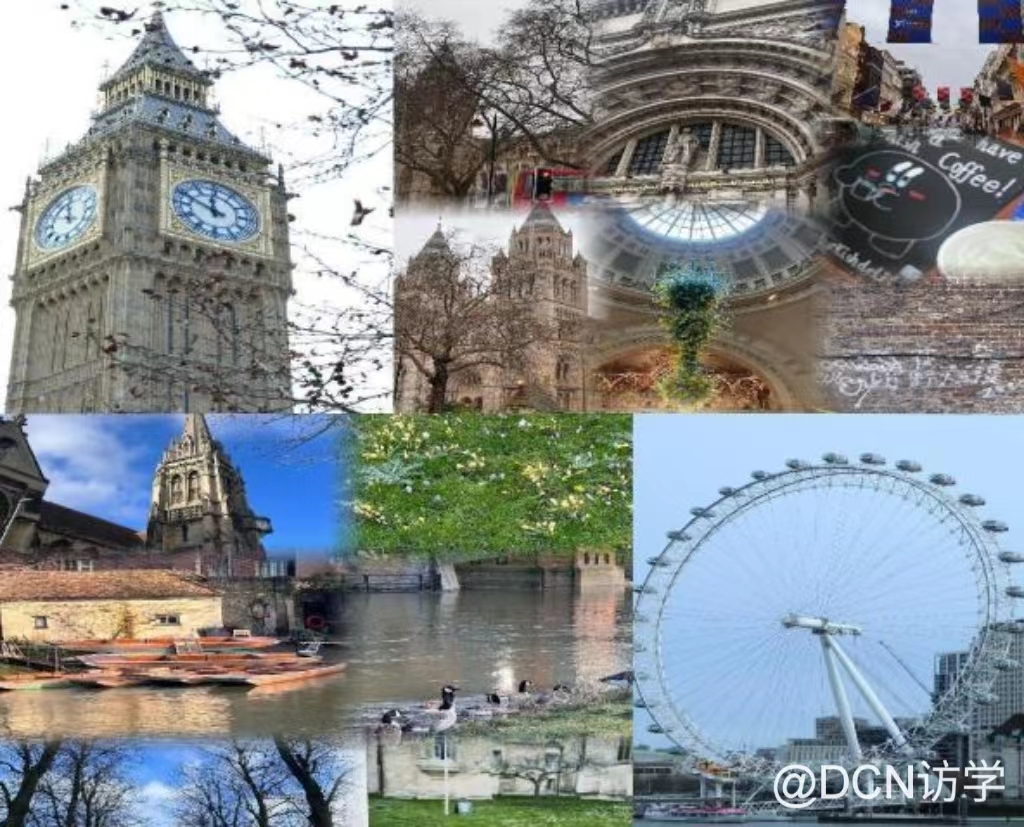
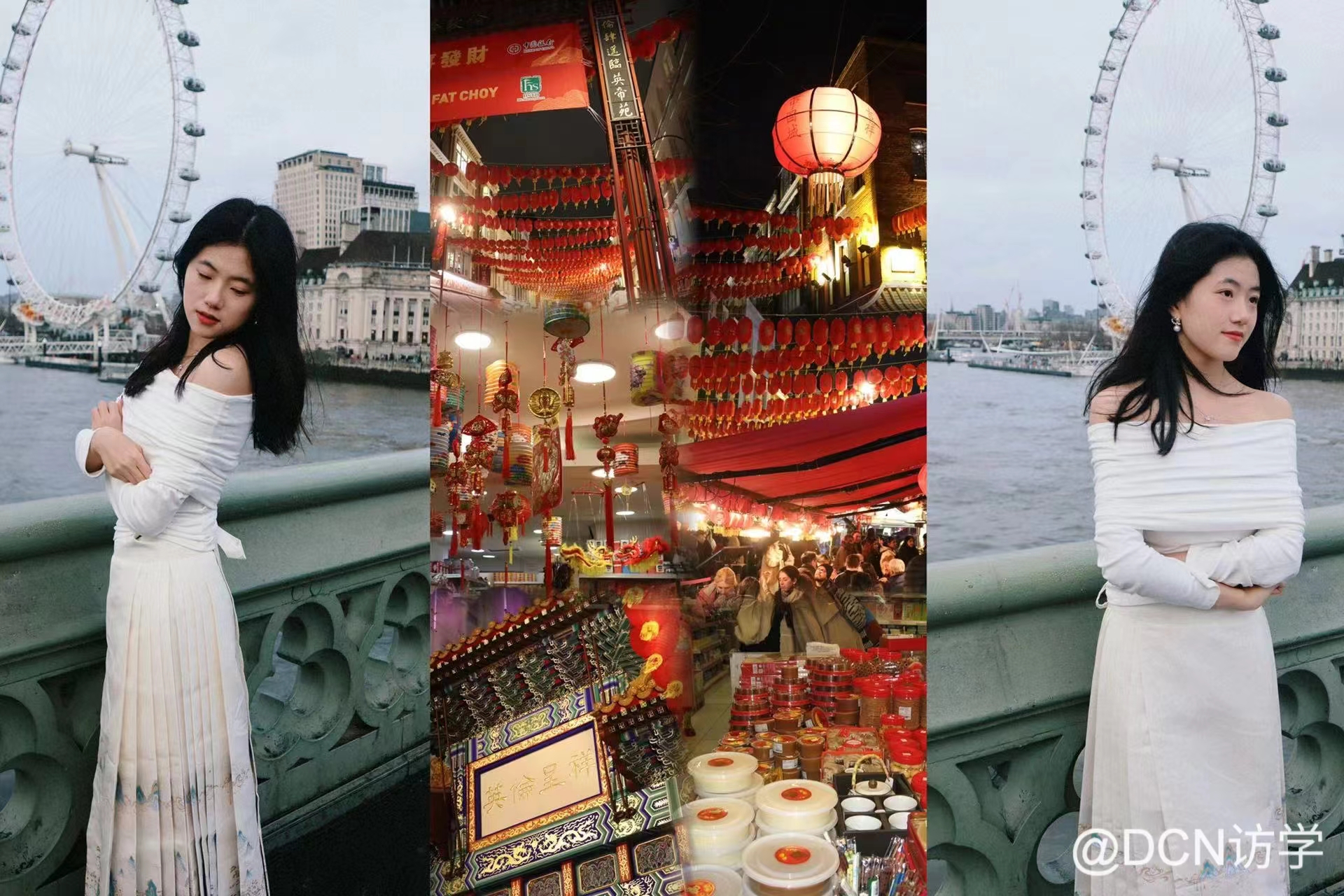
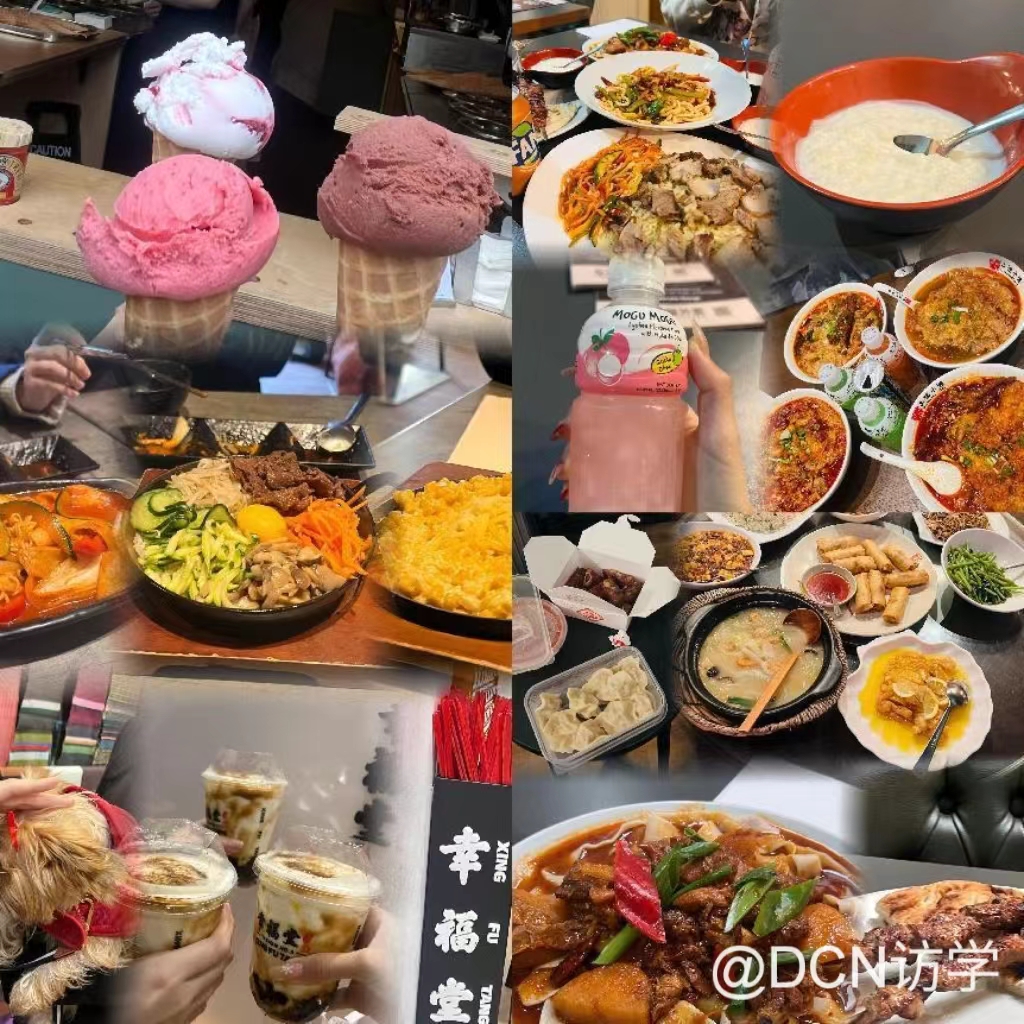
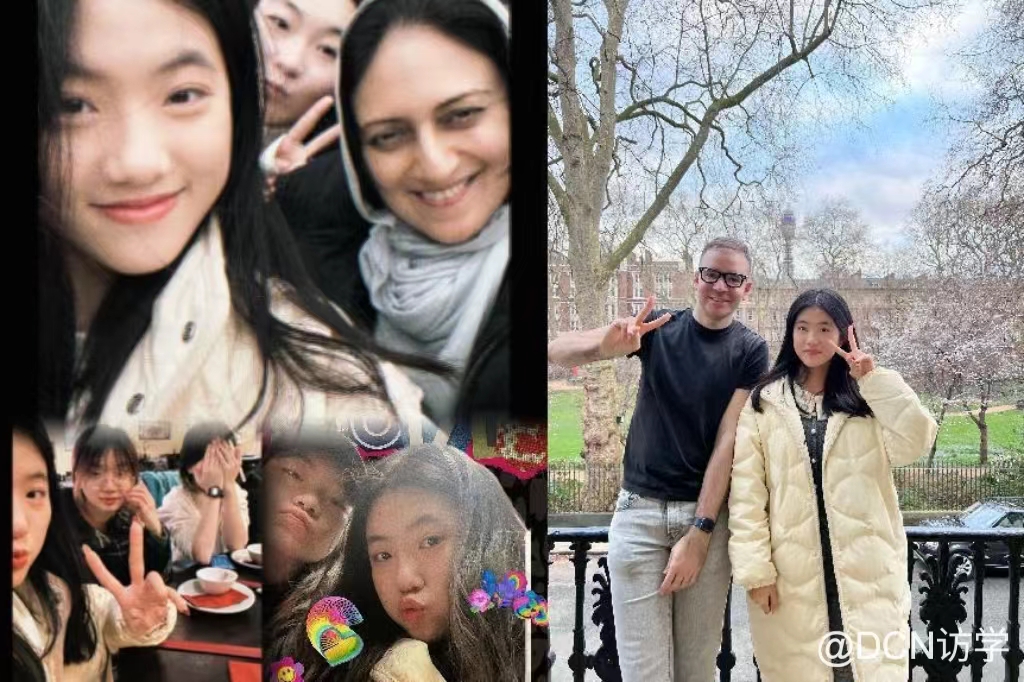
--A Student (ZHOU)
From January 19 to February 10, 2024, I participated in a three-week study tour in London, UK.This experience enriched my life, broadened my horizons, and deeply transformed many of my preconceived notions. It greatly improved my ability to view things objectively and enhanced my critical thinking.
As a freshman who had just started university and hadn’t yet had the chance to take the English CET-4 or CET-6 exams, I was honored to be placed in an intermediate-level English class. The class was taught by Carla, an incredibly charismatic Italian woman who is fluent in multiple languages, warm, patient, and humorous. We all adored her. She called our breaks "have a kitkat" (referring to a popular chocolate in the UK, which I later had the chance to enjoy on my flight from London to Shanghai). Carla pointed out many mistakes in our English that we hadn’t noticed in China, explained them systematically, and taught us authentic London slang. She gradually guided us through the process of creating an academic report, and on February 9, we even celebrated a lively Chinese New Year together at the restaurant "Three Gorges Family." When it was time to say goodbye, and Carla hugged me tightly, instead of feeling emotional or teary, I just wanted to call her "Mom" to express my gratitude for her constant care during these three weeks. At the end, Carla handed out a questionnaire to see which area each student felt they had improved the most over the course. I skimmed through the options but decided not to check any of the boxes. Instead, I raised my hand and eagerly gave the answer that was on my mind: "My active attitude towards learning English." Yes, when I first arrived in London, I was too shy to speak in class, but Carla patiently guided and encouraged me. By the second week, I had gradually gotten used to speaking without rehearsing my thoughts in English first. By the third week, I was able to speak spontaneously, often making everyone laugh with my dry humor. Although my speaking hadn’t improved to a perfectly fluent level, at least I had gained the courage and willingness to speak. I could even naturally ask for help on the street when needed. This confidence was undoubtedly the greatest gift Carla helped me uncover.
My classmates in the program were also very interesting. They came from different schools, majors, and grades. There was the president of G.E.M.’s fan club in South China, a senior from Shenzhen who wore shorts and a T-shirt in the cold London winter, a graduate student in Traditional Chinese Medicine who was great at taking pulses, and a "smoke and drink guy" who, like me, ended up taking a picture of an ad for a Chengdu rapper outside UCL. Together, we flew to Edinburgh overnight, watched cannons being fired at Edinburgh Castle, stood in awe before Monet’s original paintings, and shared a comical moment when we ordered four Black Forest caramel puddings but were served four bowls of mashed potatoes instead. We also got separated in a small town but reunited with joyful hugs. When I think back on these dazzling, bright memories, I can’t help but marvel at how vivid the recollections are. How incredibly happy I must have been to experience them in real time!
If I had to say what impressed me the most besides the academics during these three weeks, it would definitely be the food and drink. We were diligently practicing English, yet we didn’t expect that not every restaurant menu in London was written in English—and even when it was, it was abstract. The Wi-Fi in restaurants was often poor, and after struggling to translate the menu on our phones, we’d always laugh at the strange combinations of words we found. In fact, ordering food at non-Chinese restaurants often felt like opening a mystery box—you never knew what kind of bizarre dish would be served. Of course, personal taste plays a big role in this. As someone used to Chinese food and who thought "pasta" only referred to Italian noodles, I found myself in tears after four days (eight meals) of not finding any food to my liking. On the fifth day, I rushed to the most popular Chinese restaurant right after class and devoured three bowls of rice. I cried while eating, and after finally calming down, I teared up again when it was time to pay—it was so expensive! To put it simply: a bowl of braised beef noodles cost around 160 yuan! Another surprising discovery was that almost every Chinese restaurant in London, whether serving Sichuan or Cantonese cuisine, was run by Cantonese-speaking owners (at first, I thought they were all from Hong Kong, but later found some were from Malaysia). This made me feel even more at home while enjoying familiar dishes.
Additionally, before coming to London, I had written a speech for a competition on cross-cultural communication. Back then, all my sources were from the internet, and I thought my speech was well-rounded. Little did I know, the internet can only offer a mixed bag of truths. It wasn’t until I experienced things firsthand that I realized how valuable my own personal experience would be. This trip will undoubtedly provide me with excellent material for any future competitions on similar topics.
It’s impossible to fully capture the emotional journey of this UK study tour in just a few words, but my love and nostalgia for it can perhaps be glimpsed through these 1,500 characters. Yes, London, as an international metropolis, has both its strengths and flaws. But as I wrote in my final report: "Anyway, we do believe London is always an opening city. You can make use of its resources and it will give you a warm welcome whenever you want to come back." I eagerly look forward to reuniting with London, as a better version of myself.
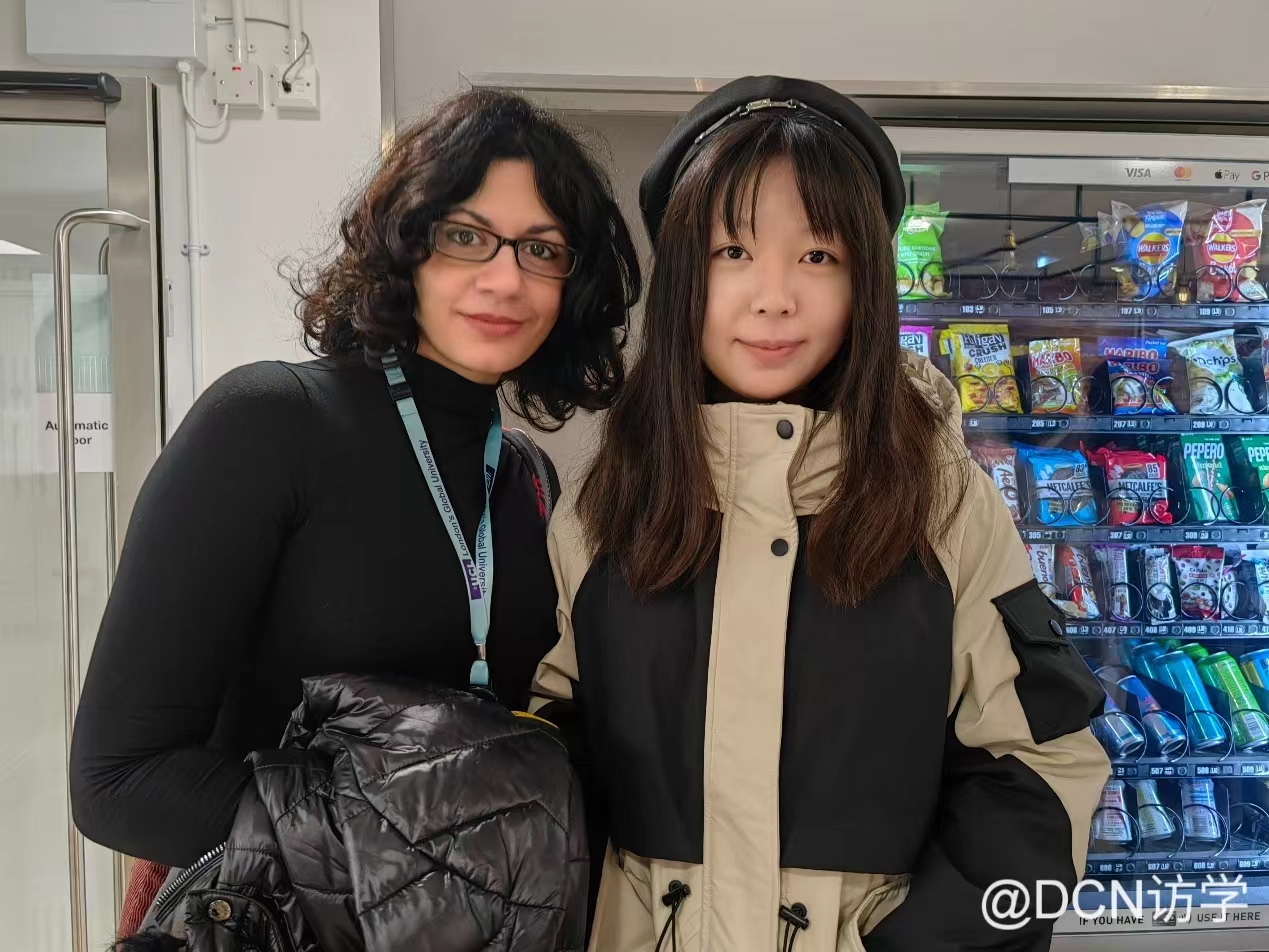
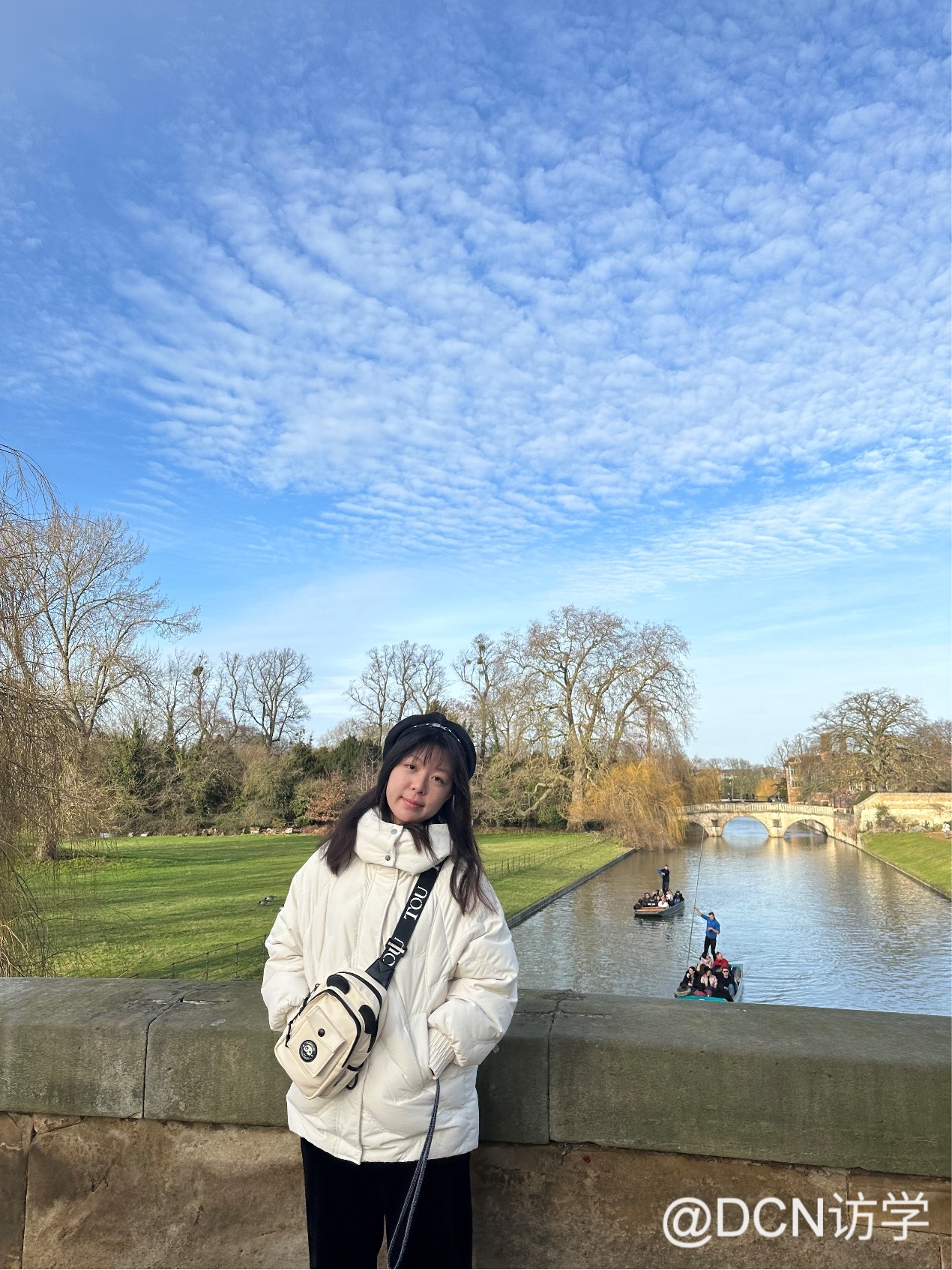
--A Student (CHEN)
With feelings of nervousness, excitement, and anticipation, I boarded a 12-hour flight and finally landed in the UK to begin my study tour. My first two meals in the UK were at the restaurant downstairs from the hotel. The hotel’s environment, location, and food were all excellent, providing a great start to my three-week journey in the UK. The teachers arranged for senior students and local students to help us get acquainted with the area and the campus, which helped ease some of our worries and anxieties about living in a foreign country. On the first day, we had a welcome meeting for new students. With introductions and a warm welcome from David, the overall program coordinator, I officially began my courses at UCL. My teacher was Andy, a gentleman with a true British style.
In each class, we were given a lesson plan. Before every class, the teacher would write the learning objectives on the left side of the blackboard. This approach was different from what I was used to in China—it was more systematic and precise, helping students clearly understand their goals and focus areas, which in turn improved classroom efficiency. Our classes were small, and much of the teaching was done through group discussions. This not only helped us quickly get to know our classmates but also made the learning environment more open and interactive. In contrast, in China, the teaching style is usually more formal, making discussions a bit more restrained. The atmosphere in the classroom was much more relaxed compared to what I was used to, with Andy playing lively background music to create a light and energetic mood, something that left a strong impression on me.
The teaching method here emphasized making students think and discuss first, allowing us to form our own ideas before learning new material, rather than just directly receiving information. This approach made the knowledge we acquired more memorable and less likely to be forgotten.
Over the course of three weeks, I improved my listening skills and report-writing abilities. Working with my group, we prepared questions to interview UCL students, which also helped me improve my speaking skills. In the end, we completed a group presentation together. One of the most valuable things I learned was how to improve my English listening skills. Since English isn’t our native language and we don’t usually immerse ourselves in an English-speaking environment, it’s hard to naturally improve listening comprehension. Andy taught us an effective method: first, familiarize yourself with the topic, including technical terms and questions you want to ask. Then, watch the speech without subtitles three times, answering your own questions each time. Finally, watch it once more with subtitles and summarize the key points. I found this method very effective and plan to continue using it in my future English studies.
Aside from studying, we also had plenty of time to explore different places. This is one of the benefits of a study tour—having free time to immerse yourself in local life and improve your self-sufficiency and survival skills. We navigated everything on our own, using apps on our phones and local transport cards. Though it was tiring and required a lot of trial and error, the rewards were immense.
During the study tour, I also made many good friends. The last day of our three-week program coincided with Chinese New Year’s Eve. As we faced the approaching farewell, my friends and I were reluctant to part. That night, we stayed up all night chatting and playing cards, putting a perfect ending to our study tour.
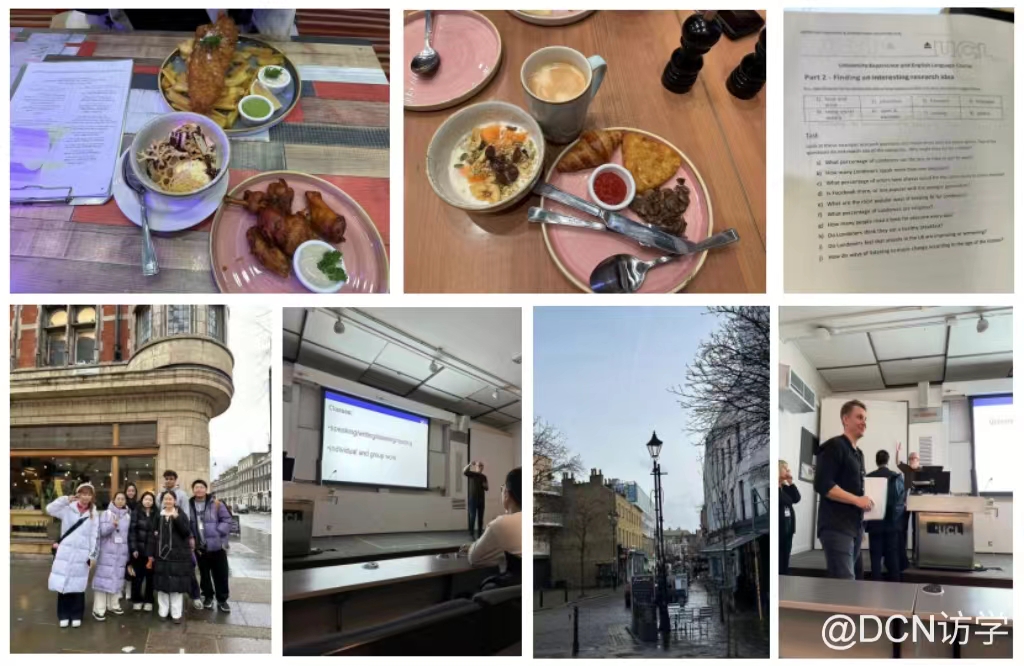
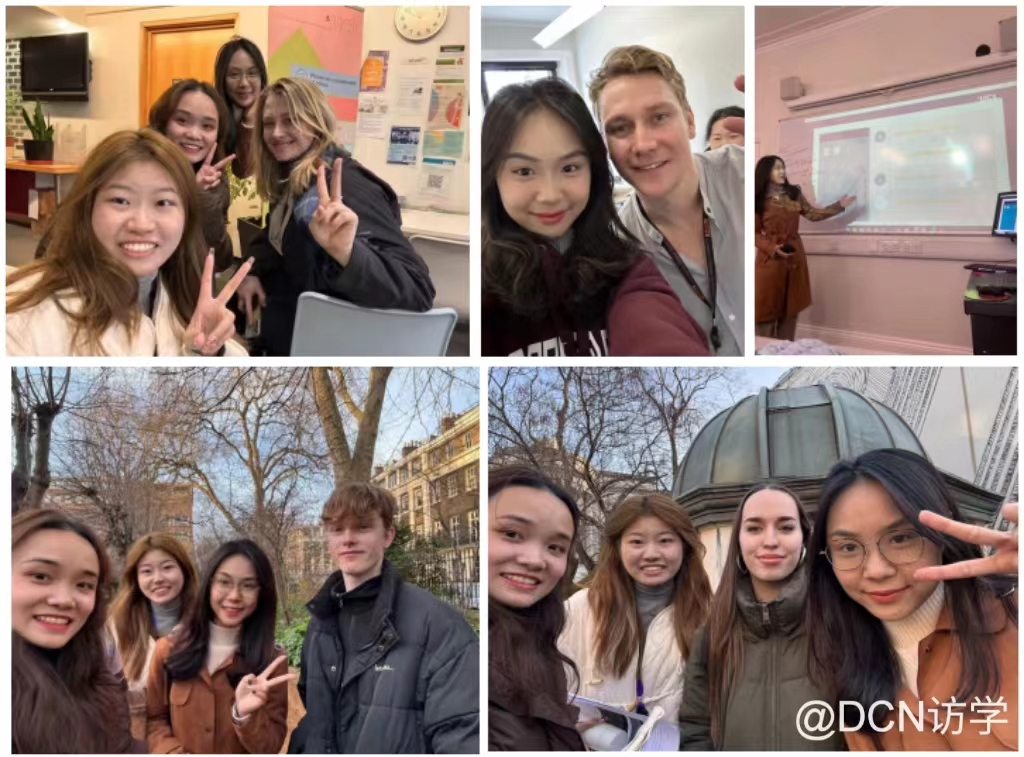
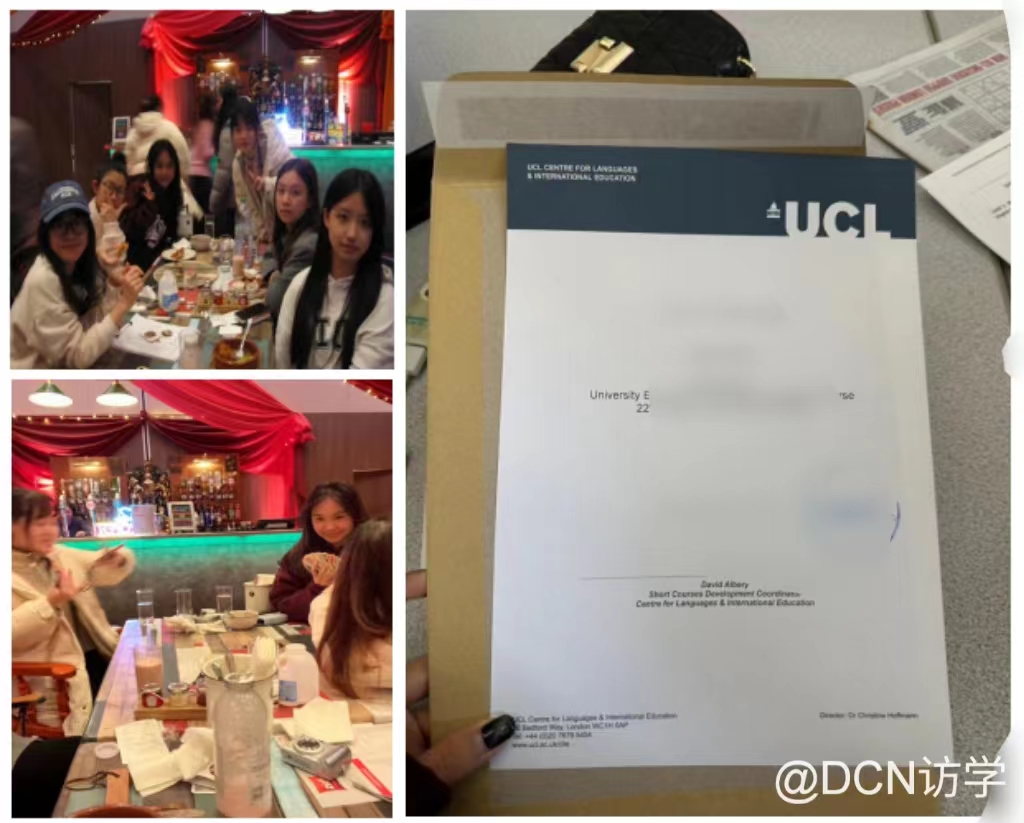
London is a city full of energy and history. I believe that the students on this visit felt the same way. Looking back and gaining something is the most successful conclusion of this visit. We hope that the students will live up to their dreams.
*This is the English translation. In case of any discrepancies, the Chinese version shall prevail.